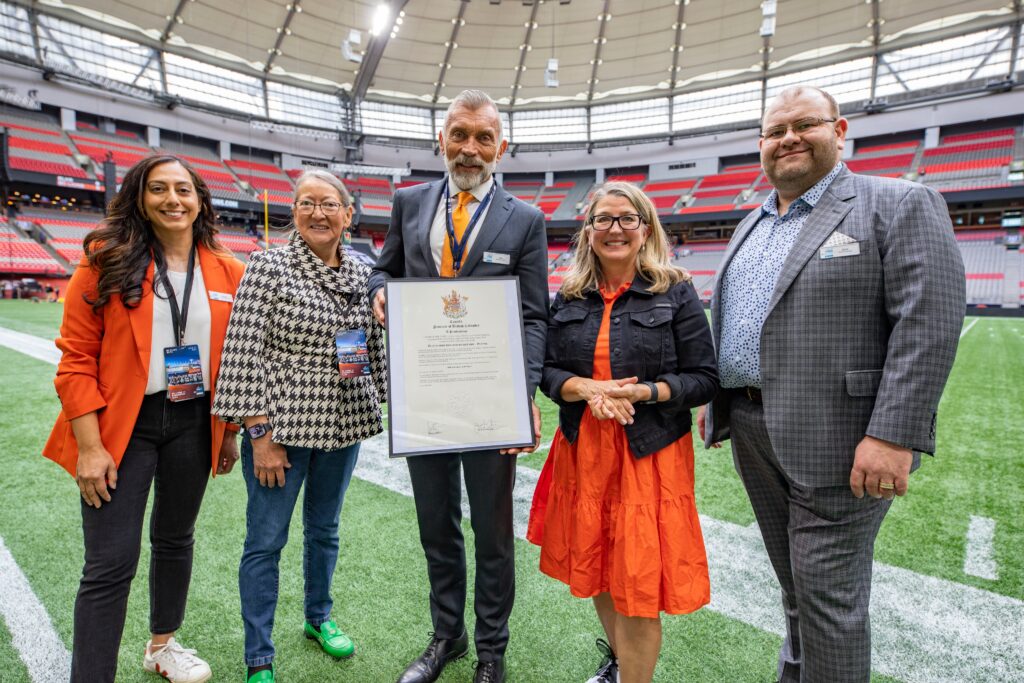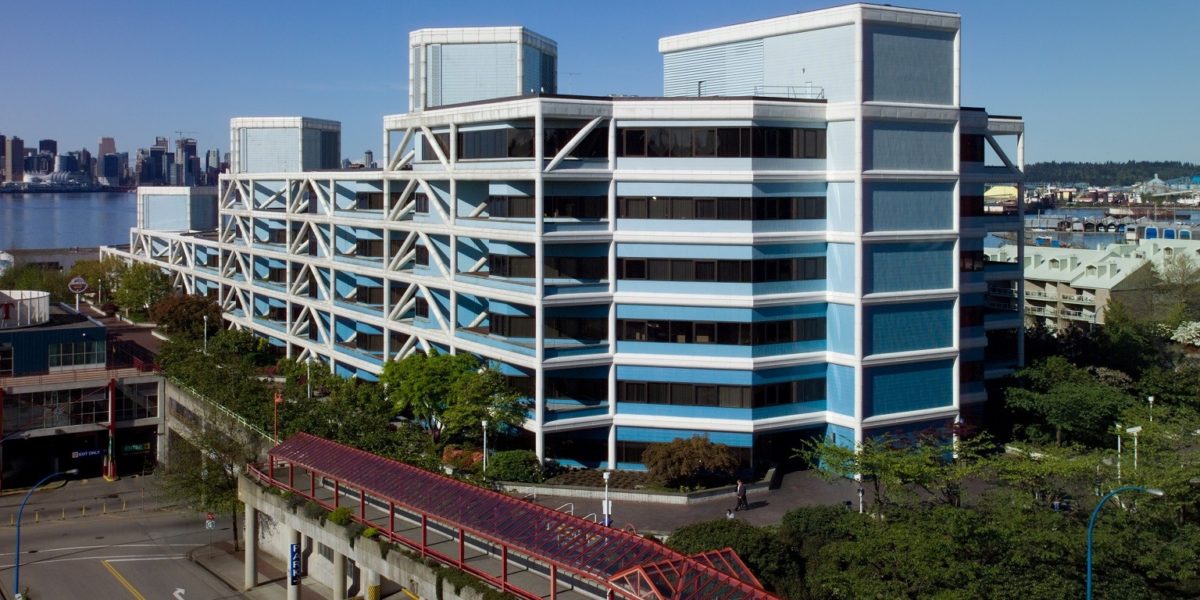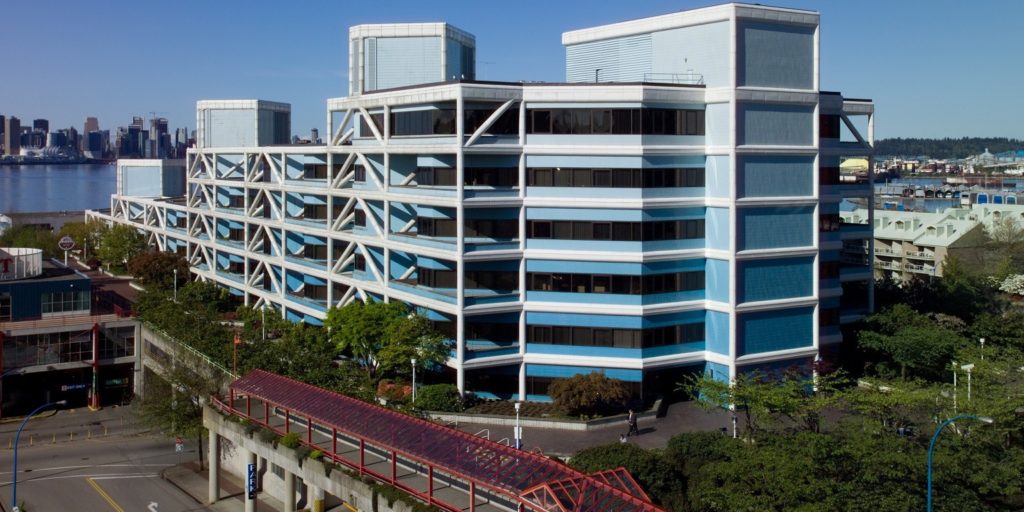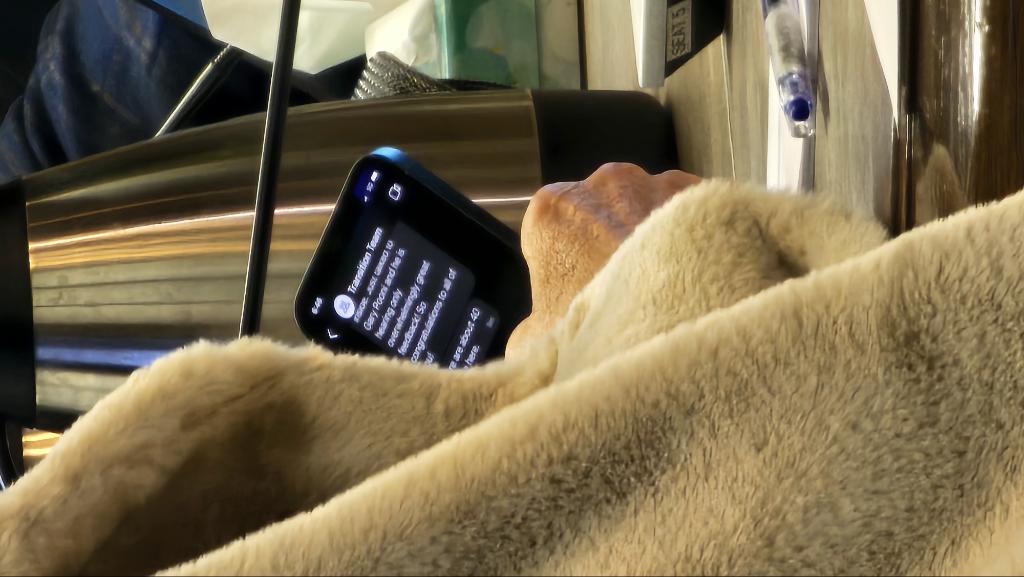B.C.’s FIFA budget mystery continues
Bob Mackin
The NDP minister in charge of B.C.’s planning for FIFA World Cup 26 is not ready to release the estimated cost because she said officials were surprised when FIFA scheduled seven matches at B.C. Place Stadium.

A CSA contractor’s rendering of a 2026 World Cup live site outside B.C. Place Stadium (BaAM Productions/City of Vancouver)
Minister of Tourism, Art, Culture and Sport Lana Popham’s staff refused to arrange an interview, because they said she was “unavailable.” Instead they sent a 245-word statement that said the province was busy updating cost projections. It twice mentioned B.C. got more than the anticipated five matches when the schedule was released on Feb. 4.
But the co-chair of Seattle’s host committee said last summer that planning was already underway for Lumen Field to host as many as eight matches.
Maya Mendoza-Exstrom, the Seattle Sounders chief operating officer, told a meeting of Seattle city councillors on Aug. 3 that Seattle was expecting anywhere between three and eight matches.
“But we’re planning sort of in that four-to-six range,” Mendoza-Exstrom said.
FIFA announced six matches for Seattle on Feb. 4.
When FIFA chose Vancouver to be one of the 16 hosts in June 2022, the NDP government originally estimated that it would cost taxpayers $240 million to $260 million.
In early 2023, the NDP government shifted responsibility for $230 million in costs to the City of Vancouver along with authority to charge a 2.5 percent accommodation tax through 2030. The province did not announce how much it would spend on B.C. Place renovations.
In March of last year, FIFA expanded the tournament from 80 to 104 matches. Rather than Vancouver and Toronto splitting 10 matches under the previous format, FIFA gave Vancouver seven and Toronto six.
A Feb. 26 report to Toronto city council set a $380 million budget, substantially higher than the $30 million to $45 million pondered in 2018. But B.C. government officials have been cagey. “Plans and costs are still being developed and refined with partners,” said the section of the Feb. 22 B.C. budget about the $10.6 billion, three-year contingency fund.

Minister Lana Popham (second from right) with BC Place management, marking the stadium’s 40th anniversary in 2023. (BC Place/X)
Premier David Eby told reporters March 4 in Victoria that he was committed to providing British Columbians with full economic reports, agreements and budgets “to the extent that our agreements with FIFA allow, and subject to any other restriction that we may be under imposed by a third party.”
Before his 2013 election as Vancouver-Point Grey MLA, Eby was an activist lawyer who worked for the Pivot Legal Society and B.C. Civil Liberties Association. He helped edit a 2007 report by the Impact of the Olympics on Community Coalition that contained a section critical of the province and municipalities for keeping secrets about spending public funds on the Vancouver 2010 Winter Olympics. In October 2022, the month before he succeeded John Horgan as premier, the NDP government refused to fund a bid for the 2030 Winter Olympics.
Both B.C. Pavilion Corporation (PavCo), the Crown corporation that manages B.C. Place Stadium, and City of Vancouver are refusing to disclose copies of FIFA hosting proposals and contracts. An adjudicator with the Office of the Information and Privacy Commissioner is expected to decide whether the documents should be disclosed, but an inquiry has not been scheduled.
In 2021, OIPC ordered PavCo to release its 2015 Women’s World Cup contract with FIFA. The Canadian Soccer Association blocked its release by more than six months before dropping its court challenge.
Last August, Seattle city council released its contracts with FIFA. In January, City of Santa Clara, Calif., home of Levi’s Stadium, published a censored version of its FIFA contract and the controversial “Information Sharing and Event Cooperation Agreement.” The latter document said it aims to “exempt confidential information from public disclosure to the extent such non-disclosure is permitted” under California’s public records laws.
Cobi Falconer, director of City of Vancouver’s freedom of information office, said Feb. 21 that the city did not have such an agreement with FIFA.
Support theBreaker.news for as low as $2 a month on Patreon. Find out how. Click here
Bob Mackin The NDP minister in charge of
























